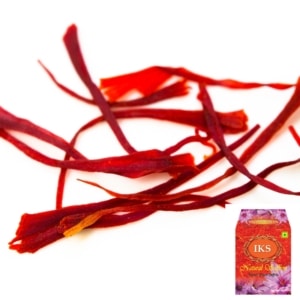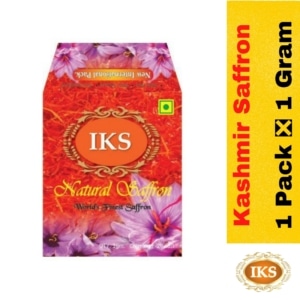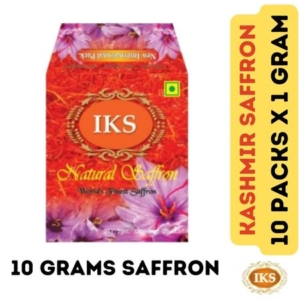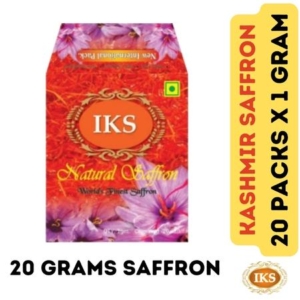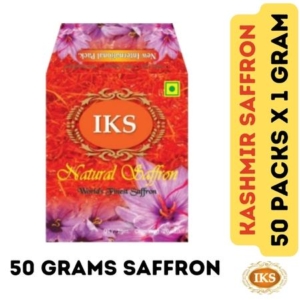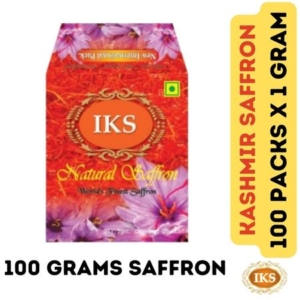Saffron for Gas: A Natural Remedy for Digestive Issues
Saffron for Gas – Digestive problems are a common occurrence that can cause discomfort and disrupt our daily lives. Gas, in particular, is a prevalent issue that many people face.
While there are several over-the-counter medications available to alleviate gas and bloating, some individuals prefer natural remedies. One such remedy that has gained popularity for its potential digestive benefits is Saffron (Kesar).
In this article, we will explore the use of saffron for gas relief and its potential effectiveness.
1. Introduction
Gas, also known as flatulence, occurs when air accumulates in the digestive system.
It can cause discomfort, bloating, and even pain. While occasional gas is normal, excessive or chronic gas can be a cause for concern.
Many individuals seek natural remedies to alleviate their symptoms, and saffron is one such option worth considering.
2. Understanding Gas and Its Causes
Gas can be caused by various factors, including swallowing air, consuming certain foods, or having an underlying digestive condition.
Beans, lentils, carbonated drinks, and high-fiber foods are known to produce more gas.
Stress, smoking, and certain medical conditions like irritable bowel syndrome (IBS) can also contribute to excessive gas production.
3. The Benefits of Saffron
Saffron, derived from the Crocus sativus flower, is a prized spice known for its vibrant color, distinct aroma, and unique flavor.
Besides its culinary uses, saffron has been recognized for its potential health benefits.
3.1 Rich in Antioxidants
Saffron contains several active compounds, including crocin, crocetin, and safranal, which possess potent antioxidant properties.
These antioxidants help protect the body against oxidative stress and free radicals, which can contribute to inflammation and various health issues.
3.2 Anti-inflammatory Properties
Inflammation in the gastrointestinal tract can lead to digestive discomfort and gas.
Saffron has demonstrated anti-inflammatory properties that may help reduce inflammation in the digestive system, thereby alleviating gas-related symptoms.
3.3 Digestive Aid
Saffron has been traditionally used as a digestive aid in many cultures.
It is believed to stimulate the production of digestive enzymes, improve gut motility, and soothe the digestive system.
These effects may help relieve gas and bloating.
4. How to Use Saffron for Gas Relief
There are several ways to incorporate saffron into your routine for gas relief.
It is essential to choose high-quality saffron and use it in appropriate amounts to maximize its potential benefits.
4.1 Saffron Tea
Saffron tea is a popular method of using saffron for digestive issues.
To prepare saffron tea, steep a few strands of saffron in hot water for about 10 minutes.
You can enhance its flavor by adding a small amount of honey or lemon juice. Enjoy this soothing tea after meals to help alleviate gas and promote digestion.
4.2 Saffron Infused Water
Another way to consume saffron is by infusing it in water. Add a few strands of saffron to a glass of warm water and let it sit for at least 15 minutes.
Drink this infused water throughout the day to aid digestion and reduce gas.
4.3 Saffron Supplements
Saffron supplements are also available in the form of capsules or tablets.
When opting for saffron supplements, it is advisable to consult with a healthcare professional to determine the appropriate dosage and ensure it suits your individual needs.
5. Precautions and Side Effects
While saffron is generally considered safe for most individuals, it is essential to exercise caution and be aware of potential allergic reactions or interactions with other medications.
5.1 Allergies and Interactions
Individuals with known allergies to saffron or other plants in the same family should avoid its use.
Additionally, saffron may interact with certain medications, such as blood thinners or mood-stabilizing drugs.
It is crucial to consult with a healthcare professional before using saffron as a remedy for gas.
5.2 Dosage and Moderation
As with any natural remedy, it is crucial to use saffron in moderation.
Excessive consumption may lead to adverse effects. Follow the recommended dosage guidelines provided by reputable sources or healthcare professionals.
6. Other Natural Remedies for Gas
While saffron shows potential as a natural remedy for gas relief, there are other options available as well.
Ginger, peppermint, chamomile, and fennel are some herbs and spices that have been used traditionally to aid digestion and reduce gas.
Experimenting with different natural remedies can help identify the most effective solution for individual needs.
7. Conclusion
Saffron, a precious spice with a long history of culinary and medicinal uses, offers potential benefits for individuals seeking natural remedies for gas relief.
Its antioxidant properties, anti-inflammatory effects, and traditional use as a digestive aid make it an intriguing option worth exploring.
However, it is essential to approach saffron usage with moderation, consider potential interactions and allergies, and consult with a healthcare professional when necessary.


